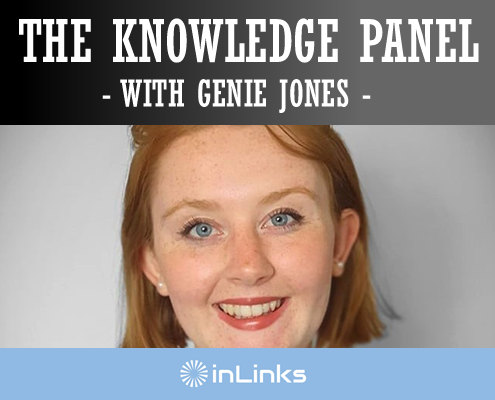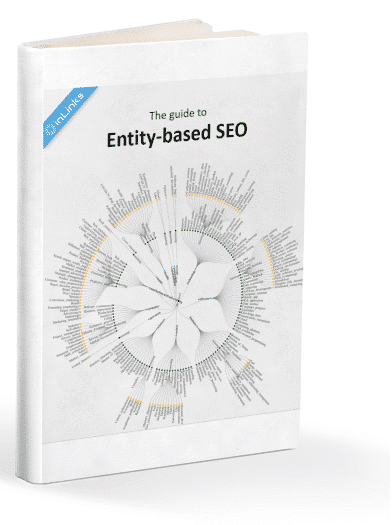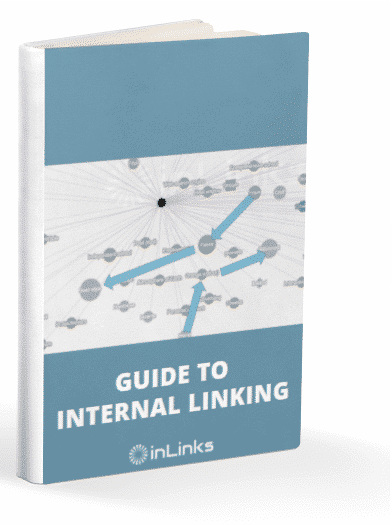“What can SEO learn from Digital PR?” is the InLinks Knowledge Panel with Darren Kingman, Eva Cheng and Isa Lavs. Hosted by Genie Jones.

Sign up below to watch future episodes live…
Want to Read Instead? Here is a Summary
In the 37th episode of the Knowledge Panel Show, a group of experts delved into the intriguing realm where SEO (Search Engine Optimization) intersects with digital PR (Public Relations). With a lively discussion, they uncovered the principles, techniques, and advantages of combining these two domains to create a robust online presence.
Meet the Panelists:
Darren: With over a decade of experience in digital PR and SEO, Darren founded his own agency, Group Digital, after working with various clients and agencies.
Isa: A freelance digital PR strategist with 15 years in the industry, Isa specializes in off-page SEO and link building for diverse clients.
Eva: Hailing from Evolve Search, Eva, a digital PR consultant, has expertise in crafting strategic digital PR campaigns.
Defining Digital PR:
Digital PR, at its core, merges the essence of PR with SEO strategies. It revolves around building domain authority by curating compelling stories and content that captivate both journalists and readers. The ultimate goal is to secure authoritative links and references from reputable sources.
The Shared Aims of SEO and Digital PR:
Both SEO and digital PR aim to establish authority within the realm of search engines. By securing top-notch links and developing authoritative content, both disciplines contribute to a website’s visibility and search rankings.
Effective Techniques and Strategies:
Analyzing Competitor Backlinks: Utilizing tools like Ahrefs and Majestic to dissect competitor backlinks, identifying gaps and avenues for successful link building.
Niche Relevance: Targeting niche-specific websites and media outlets to ensure precise outreach and optimal link acquisition.
Content Optimization: Crafting meaningful on-page content that caters to users’ queries while piquing journalists’ curiosity.
Staying Ahead of Trends: Keeping a finger on the pulse of current events, cultural trends, and social media conversations to align campaigns with trending topics.
Proactive and Reactive Engagement: Identifying PR opportunities through platforms like HARO (Help a Reporter Out) and Twitter, responding to journalist queries, and providing expert insights.
Influencer Collaboration: Partnering with influencers to amplify brand visibility, even though influencer links may not have direct SEO implications.
The Framework of a Digital PR Campaign:
Technical SEO: Ensuring a website is technically optimized for efficient crawling and indexing.
Strategic Content: Crafting relevant and captivating on-page content that resonates with both users and search engines.
Digital PR: Amplifying domain authority through strategic link building and securing media coverage.
Influencer Marketing’s Impact:
Influencer marketing has evolved from traditional bloggers to social media influencers, shaping trends and triggering viral content. While influencer links may not carry direct SEO weight, they significantly impact brand awareness, social signals, and online conversations.
Syncing with Trends:
Digital PR professionals are attuned to current trends, social discussions, and cultural shifts. This keen awareness enables the creation of timely, relevant campaigns that resonate with journalists and audiences alike.
Navigating Challenges and Embracing Opportunities:
While the blend of SEO and digital PR offers substantial rewards, it also poses its share of challenges. Securing link placements and media coverage demands meticulous research, relationship building, and innovation. Nevertheless, the prospect of obtaining high-quality links and elevating brand exposure makes the endeavor well worthwhile.
Metrics and Measurement:
Evaluating the triumph of digital PR campaigns involves tracking critical metrics such as domain authority, referral traffic, brand mentions, and social engagement. Collaboration with data analysts and leveraging tools like Google Analytics and Moz offers valuable insights into the campaign’s influence.
The Power of Synergy and Collaboration:
Effective teamwork between SEO and digital PR teams is pivotal. Regular communication, brainstorming sessions, and aligning campaign objectives can optimize endeavors and ensure consistent messaging across all channels.
Influencer Marketing: Bridging the Gap Between SEO and PR
In the world of digital marketing, the lines between different strategies and approaches can often blur. This is particularly true when it comes to the relationship between influencer marketing, SEO (Search Engine Optimization), and traditional PR (Public Relations). In this insightful podcast discussion, experts Eva Gutierrez, Darren Kingman, and Andrew McDermott delve into the nuances of influencer marketing and its intersection with SEO and PR. The panelists share their experiences, insights, and success stories, shedding light on the synergies and challenges that arise when these fields converge.
Understanding Influencer Marketing’s Role in SEO and PR
The conversation kicks off with a focus on influencer marketing’s place within the digital PR landscape. The participants emphasize that while influencer marketing can be a part of digital PR, its role varies depending on the specific goals of a campaign. Darren Kingman highlights the idea that influencer marketing can be a valuable tool from a link-building perspective, albeit not always the highest priority. He suggests that influencer collaboration is more effective when working with authoritative figures who can contribute meaningful insights to campaigns.
Balancing Quality and Quantity
The conversation shifts to the sometimes contentious balance between quality and quantity in SEO and influencer marketing. Eva Gutierrez and Andrew McDermott stress that the SEO mindset often revolves around volume – a substantial number of backlinks to drive traffic. However, they emphasize that in influencer-driven PR campaigns, the focus should be on quality, relevant, and authentic content that resonates with audiences. They share insights into the challenges of aligning the two mindsets and finding common ground to ensure campaigns are effective and authentic.
Measuring Success: Metrics and Communication
The panelists explore how to measure the success of influencer marketing campaigns and how to effectively communicate that success to stakeholders. They discuss the various metrics that can be used, including coverage, sentiment, social shares, and even keyword performance. However, they caution against solely relying on these metrics, emphasizing the importance of contextualizing them within the broader business goals. Additionally, they discuss the challenges of communicating campaign success to SEO teams who might focus solely on link-building metrics.
Lessons for SEOs and PR Professionals
In conclusion, the discussion shifts to the valuable lessons SEOs and PR professionals can learn from each other. The panelists highlight the importance of considering branding, relevancy, and authority when approaching campaigns. They discuss the need for both sides to understand the nuances of each other’s fields in order to collaborate more effectively. The panelists also share a success story involving a campaign about the “Paris Syndrome” that integrated both digital PR and SEO strategies, resulting in increased organic clicks and rankings.
In essence, the discussion underscores the need for a holistic approach that integrates influencer marketing, SEO, and PR to create impactful campaigns that align with business objectives and resonate with audiences. It’s clear that the collaboration between these disciplines holds the key to driving brand awareness, organic traffic, and meaningful engagement in today’s digital landscape.
In an ever-evolving digital landscape, the nexus between SEO and digital PR becomes increasingly interdependent. By harnessing the potency of high-quality content, authoritative links, influencer partnerships, and trend acumen, organizations can cultivate a comprehensive online strategy that resonates with both search engines and audiences alike.





Leave a Reply
Want to join the discussion?Feel free to contribute!